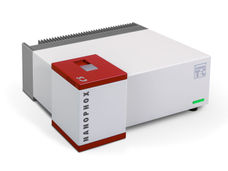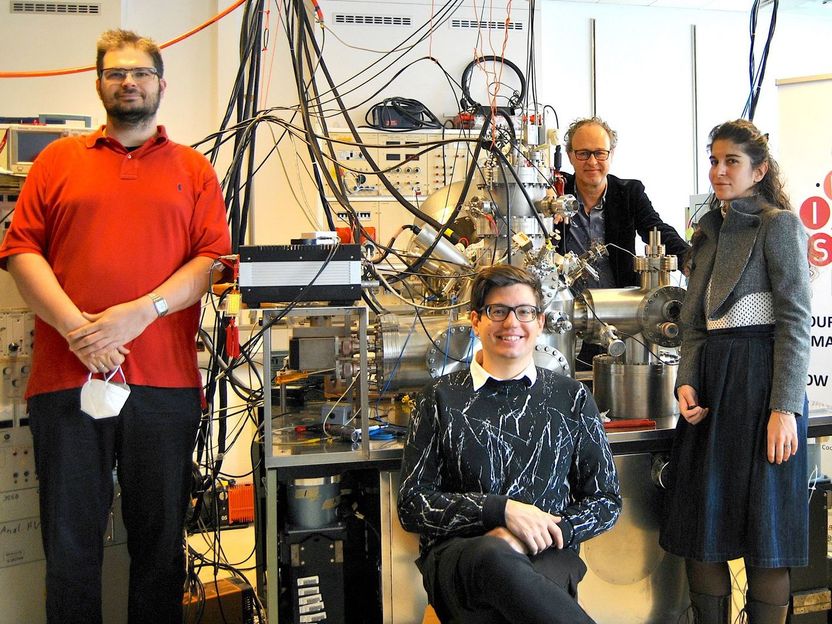A new 'Pyrex' nanoparticle
Researchers in Switzerland have developed a new method to fabricate borosilicate glass nanoparticles. Used in microfluidic systems, these "Pyrex"-like nanoparticles are more stable when subjected to temperature fluctuations and harsh chemical environments than currently used nanoparticles made of polymers or silica glass. Their introduction could extend the range of potential nanoparticle applications in biomedical, optical and electronic fields.
Thanks to their large surface-to-volume ratio, nanoparticles have generated wide interest as potential transporters of antibodies, drugs, or chemicals for use in diagnostic tests, targeted drug therapy, or for catalyzing chemical reactions. Unfortunately, these applications are limited because nanoparticles disintegrate or bunch together when exposed to elevated temperatures, certain chemicals, or even de-ionized water. Using borosilicate glass (the original "Pyrex") instead of silica glass or polymers would overcome these limitations, but fabrication has been impossible to date due to the instability of the boron oxide precursor materials.
In Nature Nanotechnology, a group of EPFL researchers, led by Professor Martin Gijs, reports on a new procedure to fabricate and characterize borosilicate glass nanoparticles. In addition to biomedical applications, the new nanoparticles could also have applications in the production of photonic bandgap devices with high optical contrast, contrast agents for ultrasonic microscopy or chemical filtration membranes.
Other news from the department science
These products might interest you

NANOPHOX CS by Sympatec
Particle size analysis in the nano range: Analyzing high concentrations with ease
Reliable results without time-consuming sample preparation

Eclipse by Wyatt Technology
FFF-MALS system for separation and characterization of macromolecules and nanoparticles
The latest and most innovative FFF system designed for highest usability, robustness and data quality

DynaPro Plate Reader III by Wyatt Technology
Screening of biopharmaceuticals and proteins with high-throughput dynamic light scattering (DLS)
Efficiently characterize your sample quality and stability from lead discovery to quality control

Get the chemical industry in your inbox
By submitting this form you agree that LUMITOS AG will send you the newsletter(s) selected above by email. Your data will not be passed on to third parties. Your data will be stored and processed in accordance with our data protection regulations. LUMITOS may contact you by email for the purpose of advertising or market and opinion surveys. You can revoke your consent at any time without giving reasons to LUMITOS AG, Ernst-Augustin-Str. 2, 12489 Berlin, Germany or by e-mail at revoke@lumitos.com with effect for the future. In addition, each email contains a link to unsubscribe from the corresponding newsletter.
Most read news
More news from our other portals
Last viewed contents
New technique 'sees' radioactive material even after it's gone
Orlov_(diamond)

Old Mystery Solved: a "New Kind of Electrons" - Why do certain materials emit electrons with a very specific energy?
Killer silk: Making silk fibers that kill anthrax and other microbes in minutes

Putting quantum scientists in the driver's seat
Altana Pharma invests in new High Throughput Screening system from Thermo Electron




























































